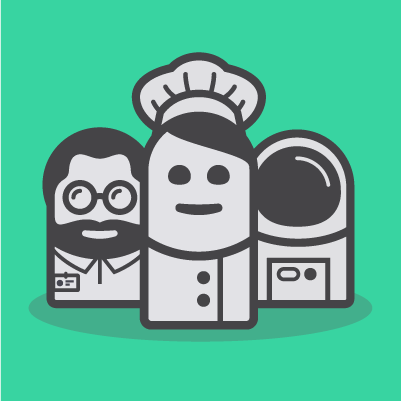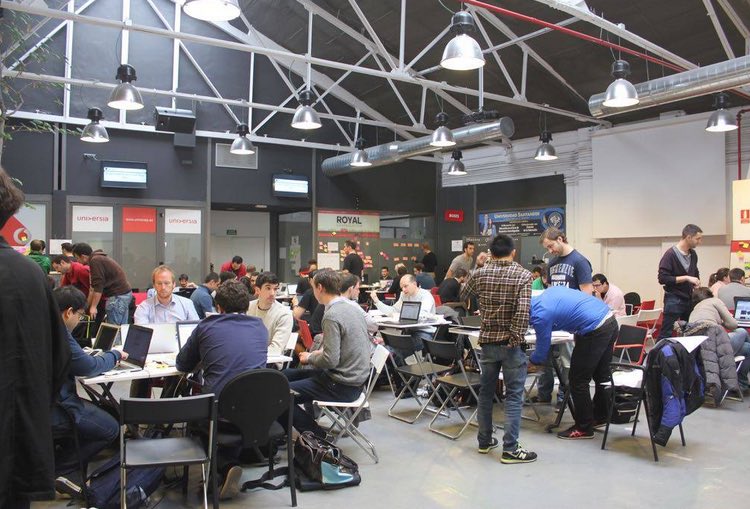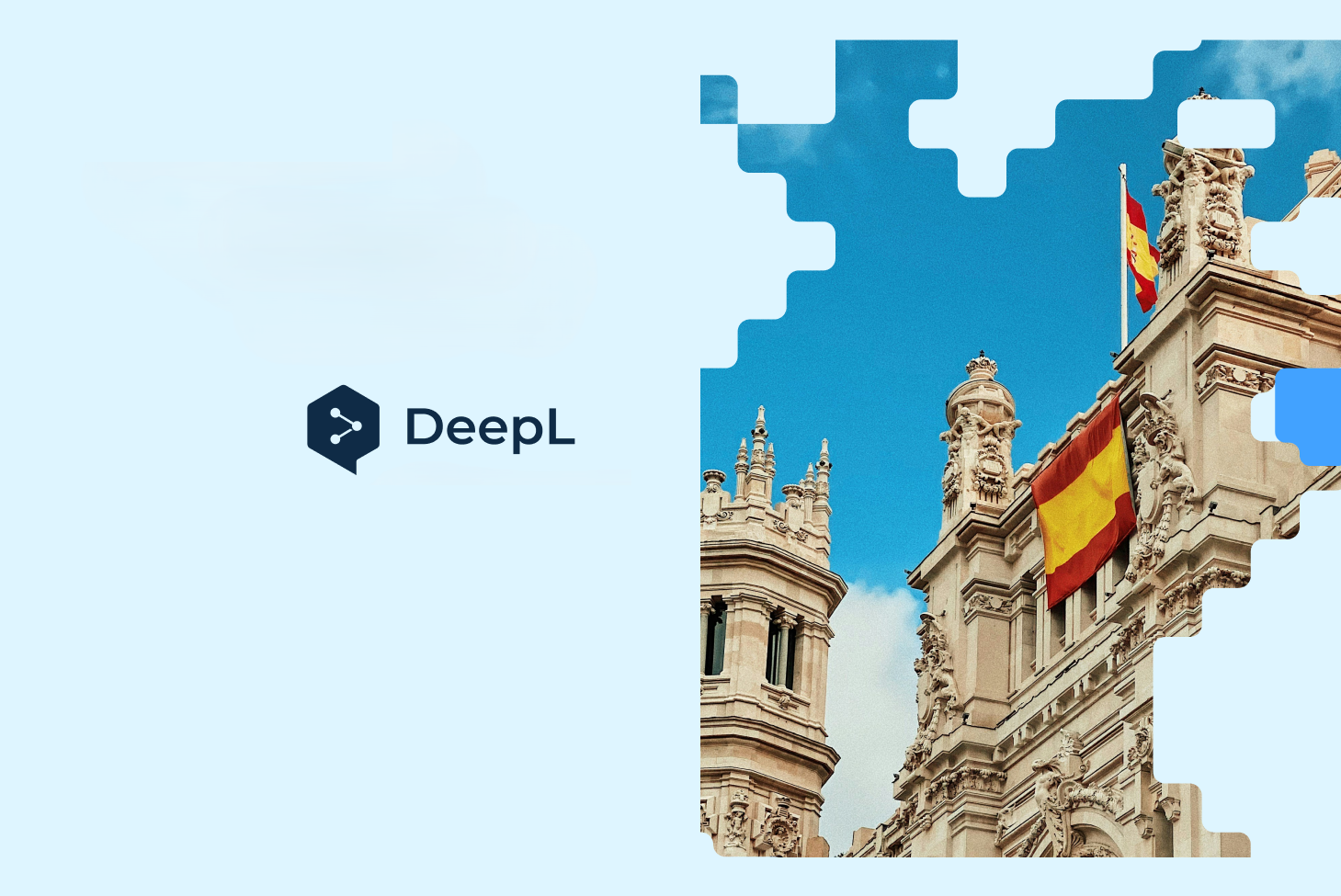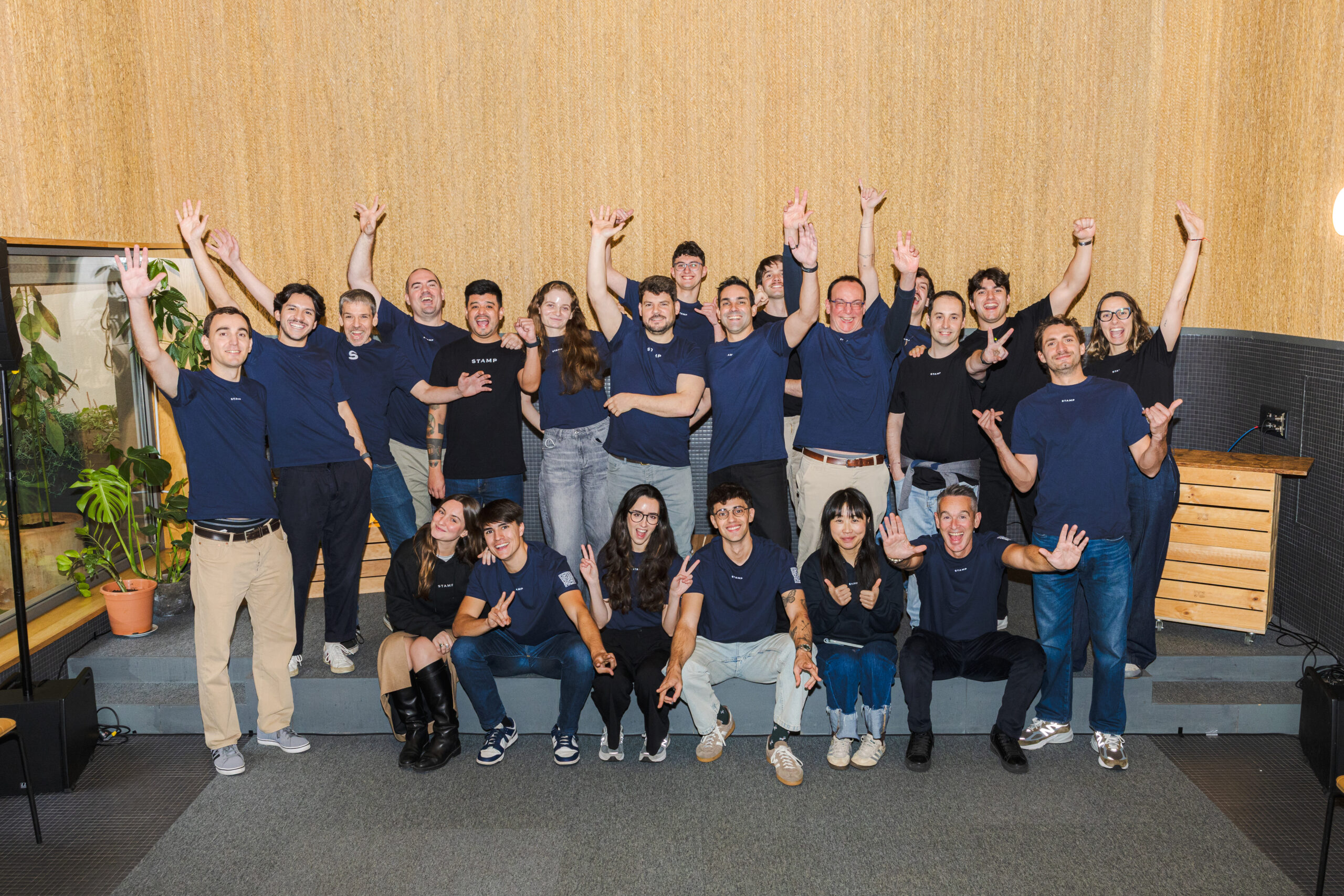Startup Weekend made a return to Madrid this past April. Surprisingly, given the drastic growth in the number of startup events over the past few years, this was the first time the event had been held in the city since 2012.
This edition took place in garAJE Madrid thanks to sponsorship from BEEVA and Kairos Digital Solutions and was organized by Raul Jiménez, Paula Cordero, Nieves Ábalos, Miguel Angel Calero, Wilhelm Lappe, Rubén Utrilla as well as volunteers Jorge Ferreiro and Jorge Aguilera
Never been to a startup weekend? This is the usual run-down:
Day 1: Attendees show up on a Friday afternoon, usually not knowing what to expect, and they are grouped into “Technical” and “Not Technical” profiles. Anyone with an idea is invited to pitch with the hopes of convincing the other 100+ people in the room to join their project for the weekend.
The pitchers or “idea-havers” then spread around the giant room, as participants shop amongst the ideas for one that seems interesting enough to commit to for a weekend. Meanwhile, the idea-havers spread around flea-market style trying to attract talent to their project.
Day 1 ends with all attendees consolidating into teams. This year there were 16 projects ranging between 3-7 people in each.
Day 2: Two goals: validation and viability. The teams are expected to get out into the streets, to conduct problem and solution interviews. Once customers have confirmed that there could be demand for the idea then the teams get to building the solution. It is often the case, however, these interviews make the team change or pivot from their original idea to something customers will want. The technically strong of the group set out to build as much of the product as they can. How much? Well product is better than beta is better than MVP is better than demo…
The technically weak (hopefully business-savvy) members of the team set out to test the business viability of the project- running numbers and continuing to interact with potential clients to refine how they will convert the idea into a money making machine. The technical people are meanwhile praying no one wants to pivot again.
Throughout the day, mentors are available to help out the teams with their ideas, offering practical advice from UX to finance and everything inbetween. The SW Madrid 2015 mentors included: Antonio Morales, José Mª Román Gálvez, Ismael Faro, Agustín Cuenca, Izanami Martínez, Manuel de Paz Carmona, Katelyn Melan, Miguel Caballero, Jorge Barrachina and Jorge del Casar
Day 3 is when the teams need to wrap up what they’ve done, and prepare to communicate why their project is the best to a panel of judges. These judges determine a winner based on the business model, the development advances made over the weekend, and the market fit the team has been able to establish over the last two days.
13 Final Startups were pitched in the main event.
This year’s jury included: Rufo de la Rosa (from Google Campus), Paloma Castilian (from Wayra Madrid), Ignacio de Miguel Ximenez (from Loogic.com) and Mario López de Ávila (from Startup Next). They selected three finalists:
- Food Way: Diego Benítez, David García, Domingo Valls, Guillem Ruiz, Marta Rodríguez and Arunima Singh.
- Ikaria: Danis Salamanca, Rubén Dugo, Antonio Escobar, Ignacio Sánchez , Natalia Rodríguez, and Álvaro O’Donnel
- Cercapp: Enrique Quero, Anddrea Usier, Jose Jiménez, Juan López and Jose Luis Mejías
Audience award: N’Brace: Caroline White, Eduardo García, Hugo Monreal, Carlos Asensio, Jaime Baselga, and Jaime Oliba
Prizes included scholarships for Startup Next Madrid (thanks to Mario López de Ávila), to the Bitspiration Festival , and tickets for Challenge.rs and Blinkist subscriptions.
Why startup weekend
Startup Weekend is one of the most legit startup events to go to if you want to start a company, and heres the top four reasons why:
You work. Anyone actually in a startup can tell you, its not all South Summit Conferences and smoozing with VCs. Life in a startup is about working a lot, and often times when no one else is (all weekend, almost every weekend, anyone?) SW is an honest representation of this reality.
You meet people who have skills you need. The whole weekend starts off by people with ideas trying to make “complete” teams (as in business+technical profiles) through pitching their idea to a room full of talented people who they want to work with for the weekend. Its a kind of microcosm of the real job market. Looking for a tech cofounder? (Isn’t everyone?) Heres a good place to start.
English. One of the most asked about needs (right after finding a tech co-founder), is “how do I improve my English”? Many entrepreneurs in Spain ask to do language exchanges with English- speakers, or even pay for classes. SW weekend is a great chance to be totally immersed in an English-speaking environment for a whole weekend and to practice pitching in the language as well.
You get to live the first few months of a startup in a few days, and you don’t need to quit your day job to do it. Startups are, for better or worse, fashionable now. And lots of people who aren’t necessarily cut out for the kind of work a startup requires are leaving good jobs to try it out because of what they read in TechCrunch. SW is a good way to try out what being an entrepreneur is like, risk-free, and begin testing your idea, too.
The event was a creative, productive, chaotic success, and there are already plans for another Startup Weekend in Madrid so keep an eye out on your local tech news for the next event….









